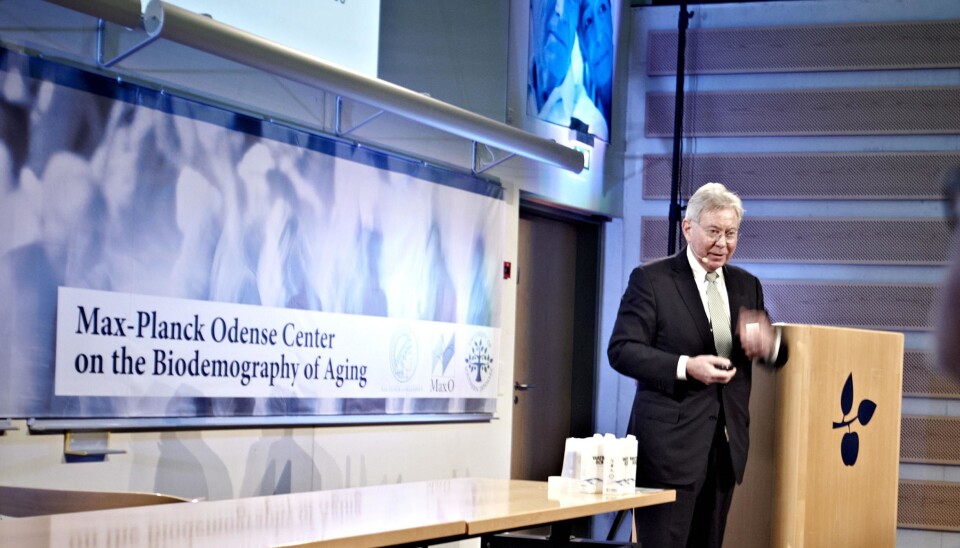
We should only work 25 hours a week, argues professor
We should keep working until we’re 80. But we should only work 25 hours a week, argues the head of the new Danish Max Planck research centre.
When you’re 20, you would rather spend more time with your friends. When you’re 35, you want time with your kids. But then when you reach 70, you have far too much time on your hands.
This scenario probably sounds familiar to many people today. But there are good arguments for changing this. We should aim for more leisure time in our youth and instead work a bit more when we get older.
“We’re getting older and older here in Denmark. Kids who are ten years old today should be able to work until the age of 80. In return, they won’t need to work more than 25 hours per week when they become adults,” says Professor James W. Vaupel, who heads a new research centre at the University of Southern Denmark, which opened earlier this week.
“In socio-economic terms it makes a lot of sense. The important thing is that we all put in a certain amount of work – not at what point in our lives we do it. In the 20th century we had a redistribution of wealth. I believe that in this century, the great redistribution will be in terms of working hours.”
A healthier old age awaits us
Researchers at the new centre will be studying the link between aging and society. As an internationally renowned researcher, Vaupel has years of research experience in this field.
He notes that there are good arguments in favour of spreading our working hours over the full course of our lives.
”There is strong evidence that elderly people who work part-time are healthier than those who don’t work at all and just sit at home. This is simply because working improves people’s health,” he says.
“The benefits are not just psychological because being an active part of society makes you people feel good about themselves, but also physically, since you use both your brain and your body when you’re working.”
Young people get more time with their kids
There are also some good interpersonal arguments in support of spreading our working hours over a longer period in our lives.
”The main argument is that this would give young people aged 20-30 more time to care for their children, do sports and other important activities that improve their lives,” says the professor.
”The way it is today, young people are slaving their way through work, looking forward to a long retirement. But why not move that retirement period around a bit so that young people get more valuable time off work?”
The public will probably welcome the idea
Vaupel believes there’s a good chance that people will embrace his idea.
”We know that elderly people are prepared to continue working if they’re capable of doing so. And I’m guessing that young people would prefer to work less while they’re young if they have the option of working more when they get older.
”I believe that many would prefer a new system compared to the current one. But these are some of the things we’ll be looking further into at the new centre.”
A research centre of international class
The Max Planck Society in Germany is one of the world’s most esteemed research institutions. And earlier this week, a Danish Max Planck centre opened at the University of Southern Denmark.
The ’Max-Planck Odense Center on the Biodemography of Aging’ will focus its research efforts on how aging affects our health and our life expectancy.
The new research discipline ’biodemography’ is a hybrid between established sciences such as medicine, biology and demography.
Biodemography research takes a closer look at the links between improved health and life expectancy, and it can help predict the social consequences of aging.
--------------------------------
Read the Danish version of this article at videnskab.dk
Translated by: Dann Vinther
Scientific links
- "Biodemography of human ageing", Nature (2010), DOI: 10.1038/nature08984
- "Longer life expectancy? Evidence from Sweden of reductions in mortality rates at advanced ages", In: Studies in the economics of aging, (Ed.) D. A. Wise. University of Chicago Press






